High Noon (1952)
“I think I ought to stay.”
|
Synopsis: |
|
Genres, Themes, Actors, and Directors:
Response to Peary’s Review: Regarding the “fairly clunky, faux-profound” script, the film’s moral compass remains notoriously challenging to grasp, with critics continuously debating whether it more accurately represents a liberal or a conservative viewpoint. While many see Cooper’s “Will Kane” as a stand-in for Foreman himself (abandoned by friends and colleagues during his blacklisting in the HUAC era), others see him as a staunch version of America, unafraid to fight and stand up to Communist threats. Personally, I choose to view the film on a much simpler and more human level — as the tale of a man who knows he’ll be followed for the rest of his life unless he confronts the menace that’s out to get him. To that end, Cooper’s Kane makes a pragmatic but life-altering choice in what seems like an instant, despite the fact that it means the disruption of his brand-new marriage to beautiful (pacifist) Kelly; indeed, given that the film is basically “told in real time”, we’re plunged immediately into Kane’s dilemma, without much of a chance to learn more about his character or what might have caused him to make such a seemingly reckless decision. Peary writes, “Personally, I think Cooper should have left town… but I’m glad he doesn’t because the final shootout is one of the western’s most exciting sequences”, since “Cooper finally displays strength” and “because of the way Floyd Crosby’s striking images are edited to fit the music”. Indeed, regardless of whether one believes Cooper is being foolhardy or not by staying in town (and I personally disagree that he shows anything but “strength” all along), the storyline itself — including the enjoyably taut final shootout — remains intrinsically compelling, simply given the threat of an ever-looming deadline, and the question of whether or how Cooper will be able to pull together enough support to stay alive. Interestingly, Peary points out that High Noon is “one of the few westerns that are favorites of viewers who dislike the genre”, perhaps because of its strategically thriller-like structure — or perhaps because of its unconventional storyline, which is ultimately more of an allegorical morality tale than a standard western. Who are the “good guys” here, and who (other than the obvious four gunmen) are the “bad”? That’s ultimately left up to viewers to decide. Speaking of personal takes on the film, Peary writes that apparently “Howard Hawks was so infuriated by Cooper’s whimpering [sic] that he made Rio Bravo to show that a professional lawman like Cooper’s wouldn’t ask common folk for help against the gunmen”. While I don’t agree with Hawks’ interpretation of Cooper’s character, I’m not upset that Rio Bravo was the result of his dissatisfaction. Note: Watch for Lon Chaney, Jr. in a brief supporting role as the town’s former sheriff; it’s lovely to see him given such a dignified moment in a highly-regarded film. Redeeming Qualities and Moments:
Must See? Categories
(Listed in 1001 Movies You Must See Before You Die) Links: |
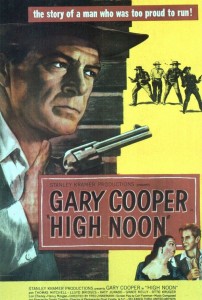
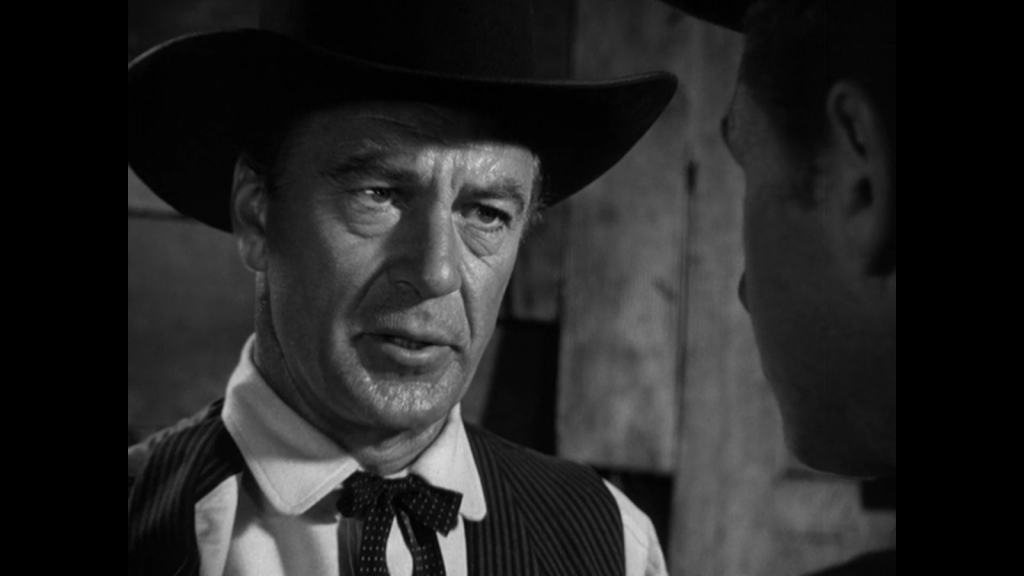
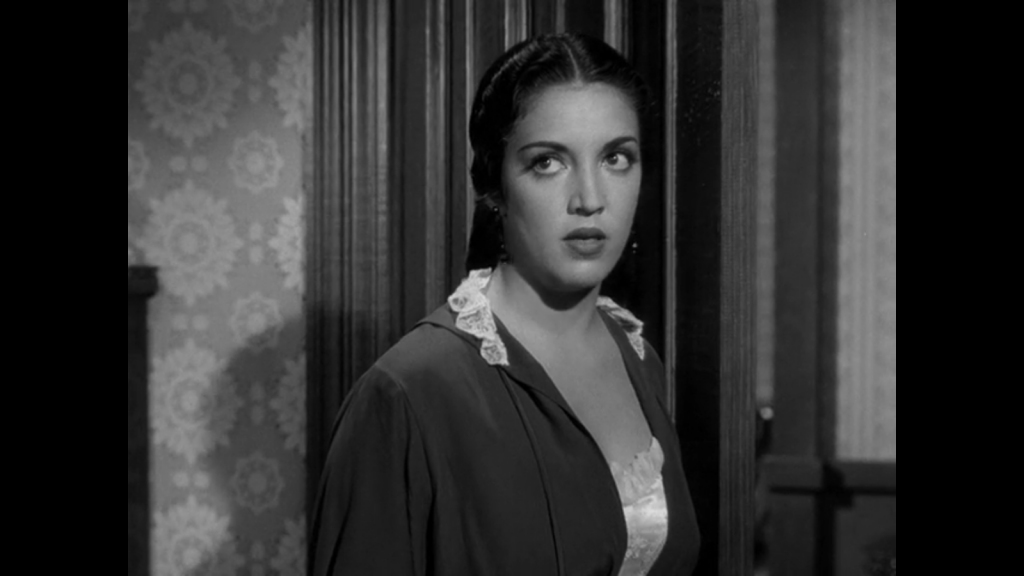
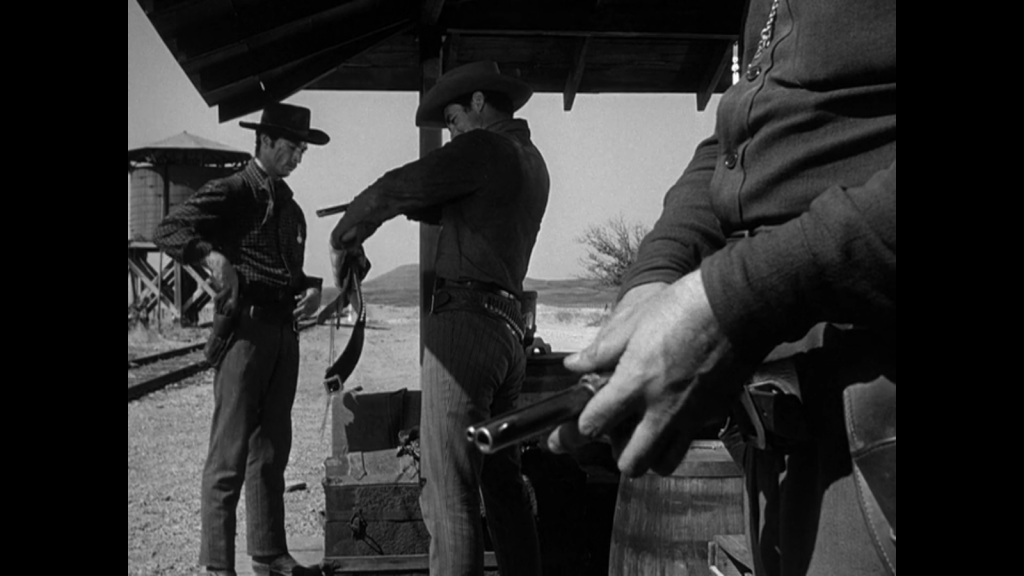
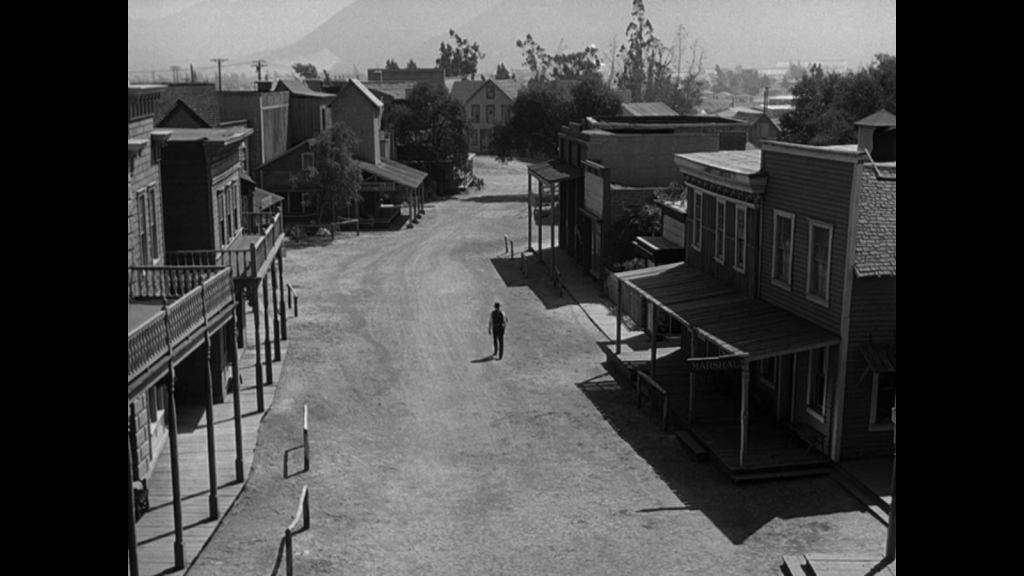
2 thoughts on “High Noon (1952)”
A no-brainer must.
Hadn’t seen this crisp, clean, pressure-cooker flick in many years, and it was a pleasure to return to it. It all simply works – all the more so since it very efficiently tells its tale in 80+ minutes, thus adding tension even as it cleverly subtracts what is best left up to the audience’s intelligence and imagination.
I can’t really answer to how certain critics (apparently) have debated this film. As the years go by, I seem to read less and less about film and simply watch it. That’s not a hard-and-fast rule – it can depend on the film – but I seem to have less time these days to backstory many films and, in a case such as ‘High Noon’, I prefer a film as simple as it is to speak for itself.
Overall, I think the entire production was in fine hands with Zinnemann – there’s not a single moment wasted or lacking in rich nuance, all of the relationships in the film are nicely delineated (there’s a wide range of them in their complexities), and the director gets exemplary, modulated work out of his entire cast. (I had actually forgotten what a particularly fine cast was assembled here – even Kelly impresses me, and that’s strange for me. Agreed – it is especially nice seeing Chaney Jr. given such a nice bit in a top-drawer film, and he’s given what I think is the film’s best bit of dialogue: “People gotta talk themselves into law and order before they do anything about it. Maybe because, down deep, they don’t care. They just don’t care.”)
Can’t really fault this one at all.
Watching it again, I thought of the influence it most likely had on Mel Brooks’ ‘Blazing Saddles’ and Sergio Leone’s ‘Once Upon A Time in the West’ (my favorite western).
I love 50s westerns and this is one of the best. Gary Cooper, Oscar worthy.
The internet still says that John Wayne turned down the role of the sheriff – even the 2019 blu Ray of the film says Wayne refused the role. I believe producer/writer Carl Foreman’s son who said Wayne was never offered the role.
John Wayne collected Gary Cooper’s Oscar for him ( Cooper was filming in Europe). Wayne joked about why he hadn’t been offered the role.
Even Cooper wasn’t the first choice – Henry Fonda, Gregory Peck and Kirk Douglas were considered.
This was Katy Jurado’s first English speaking role and she was excellent.
High Noon was Lee Van Cleef’s first film and he had no dialogue, but that stare of his spoke volumes!
That famous high shot of Cooper walking through the town, deserted by everyone, all doors shut to him. Director Fred Zinnemann borrowed a huge crane to achieve the effect ( in the Columbia ranch Western street).
If, like me, you’d love to be on the spot where a famous film was made, you could stand on the railroad tracks where the noon train came in. It was filmed at the historic park at Jamestown, California.
Tex Ritters’ rendition of Dimitri Tiomkin/Ned Washington song, ‘Do not forsake me,oh my darling’ is just perfect – Ritter’s southern drawl as he tells the story, the superb, stark, repetitive musical arrangement.
According to IMDB, only three instruments accompanied Ritter – guitar, accordion and a Hammond Novachord ( an electronic synthesiser).
“Wait along, wait along……”